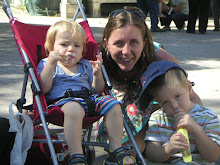A moral dilemna
A plan to reduce HIV infection rates in the worst affected countries (read sub-Saharan Africa) to 1% within 50 years has been formulated. It will be expensive to launch but get progressively cheaper and is probably no more expensive than the alternative which is to supply anti-retroviral drugs to an increasing number of sick people over the next 50 years, not to mention the cost to the economies of these countries of the AIDS-related deaths of many productive adults. Cause for celebration, right?
There is, of course, a catch. The catch is that this plan involves the compulsory testing of everybody in those countries and obligatory medication of all HIV-positive people with anti-retrovirals, irrespective of whether they are actually sick or not. This treatment - over several years - reduces the level of the virus to a point where the carrier is no longer able to infect anyone else, but at the same time the toxicity of the drugs causes some unpleasant side effects. So we are talking about the forcible medication of people, with potentially harmful effects, for the greater rather than their personal good.
Without getting into a discussion of the practicalities of applying this on a universal level in counties with limited if any health and transport infrastructure (think Somalia, Darfur, Chad, Eastern Congo), the human rights considerations are complex. It's an issue that interests me not only on an intellectual but also a personal level. On Saturday our mechanic - a young and highly skilled man - died of a severe malaria, quite possible acerbated by his HIV-positive status. I don't know if he knew he was HIV-positive. I do know that he employed half a dozen people, had several children, and was sexually promiscuous. Last year an exceptionally talented local carpenter died of what was almost certainly AIDS-related illnesses. I also know that my maid's daughter (c. 20 years old, mother of one) and one of my neighbours (a musician) are also HIV-positive. I'm quite sure that many other people I know here are also infected, whether they know it or not. Behaviour is not changing, people are dying, the country needs all the able-bodied workers it has to keep the economy growing, and the health service is severely over-stretched. Does that make it right to impose an aggressive medical regime on all of them? I don't know the answer, but I'm pretty sure that I'm going to see a lot more people dying of what Mozambicans call "the disease of the century".
Labels: AIDS


